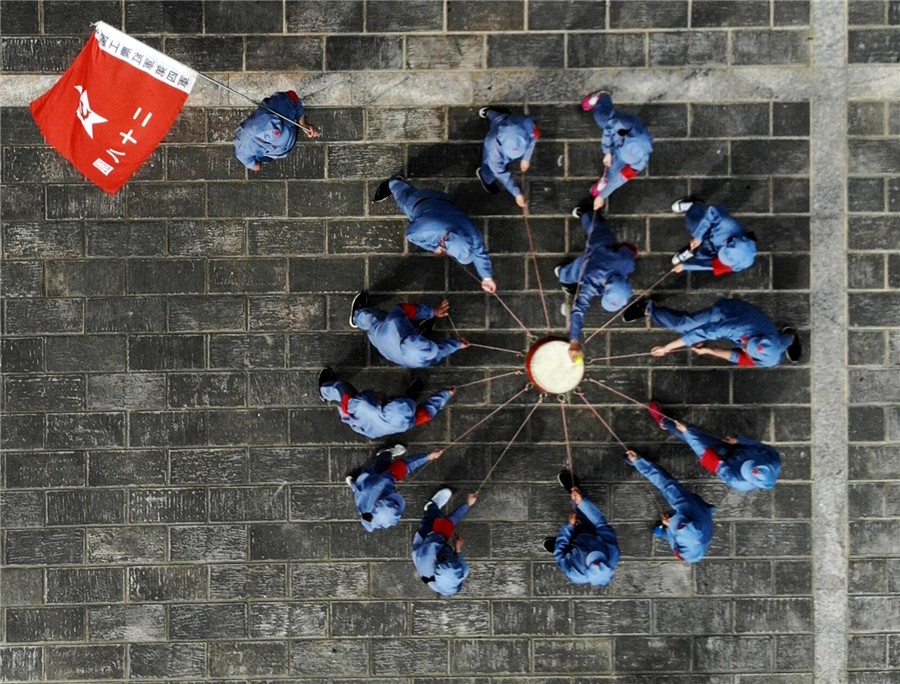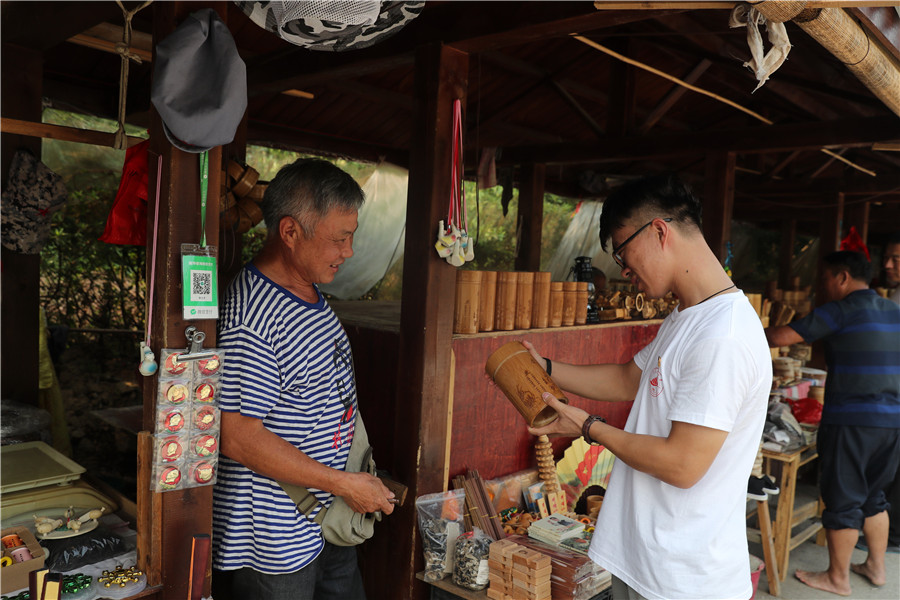
From the People's Daily App.
This is Story in the Story.
The birthplace of the Chinese revolution, Jinggangshan, Jiangxi province, is seeing an influx of literally millions of tourists which is creating new business opportunities.
The city offers a number of experiences to bring alive the difficulties the Red Army faced in the late 1920s. One such experience is a summer boot camp for students to learn the history of the revolution.
The students are attracted by so-called "Red Education” and are among more than 10 million tourists who travel to Jinggangshan every year to experience its role in the revolution.
Hotels around the main attractions offer no more than 20,000 beds, which means homestays have huge potential to meet demand.
Today’s Story in the Story looks at how the massive number of visitors and limited amount of accommodation is helping lift the largely rural population out of poverty.

Tourists from Guangdong province conduct team-building activities while wearing Red Army uniforms in Dajing village, Jinggangshan city, Jiangxi province, last month. (Photo: CHINA DAILY)
A dozen "soldiers" tossed fake grenades into the target area, climbed over a wall made of tires and zigzagged nimbly to avoid touching white ropes meant to simulate a "rain of gunfire."
The scene might look like a military drill, but it was a dozen university students reliving a day of the Red Army. The event was part of a summer boot camp.
"We have red stories backed by the 5A-level tourist spot (classification); we have green ecology. These are the best conditions to develop rural tourism, so we don't lack customers," said Liu Jiguang, Party secretary of the Dalong township.
In Bashang village, Xiao Fumin, 66, and his wife are among the beneficiaries of the tourism boom.
The couple, who run a homestay, expect the students in their house after the reenactment is completed. They will be fed a rustic meal stir-fried in a big wok on a wood-fire stove and served in the kitchen. "Students of all grades, from primary school to university, from all over the country come to my house every year," Xiao said. "In 2016, we received more than 800."
Before the tourism boom, the majority of people living in Jinggangshan were trapped by poverty, due mainly to the difficult terrain, isolation and poor farming conditions.
Like Xiao, many once made a humble living by planting rice, trading salt and raising livestock.
Located deep in the mountains, many villages in Jinggangshan have no access to public transportation. Young adults leave to get jobs in cities and other provinces, leaving behind the elderly and young to farm crops which barely produce enough food to fill their stomachs.
According to the villagers, the cold mountain water is not good for the crops. The terrain also means there is little available farming land, while the weather makes vegetation susceptible to pests.

A visitor buys local souvenirs in Jinggangshan last month. (Photo: CHINA DAILY)
Despite the hardship though, Jinggangshan has one big advantage to lift it out of poverty-abundant historical sites marking the Chinese rural revolution.
Known as "the cradle of the Chinese revolution", Jinggangshan was the first revolutionary base of the communist Party of China and the headquarters of its army led by Mao Zedong.
After the aborted Autumn Harvest Uprising in 1927, one of the early armed insurrections by the Communists against the Kuomintang and the landlords of Hunan province, Mao led his forces to Jinggangshan. There, he established a base with the help of local chieftains.
Today, Jinggangshan boasts a revolution museum and martyrs' memorials. Many villagers are descendants of Red Army martyrs and grew up hearing the stories of their ancestors.
To take advantage of these and other stories and present a picture of how the Red Army fought under harsh conditions, the city has designed "Red Education" courses, to let tourists better understand the history of the city and experience the revolutionary spirit.
22-old Li Zhaoning from Anqing Normal University in Anhui province is one of the boot camp members who experienced a day as a Red Army soldier.
"We tried red rice and pumpkin soup for lunch," Li said, explaining they were typical Red Army dishes. "They tasted fine because we had good seasoning. But the Red Army ate them without other ingredients or condiments. It was the only food they had at that time."
Since 2011, a large number of villagers with the encouragement of the local government, have opened their doors to tourists and offered bed and breakfast.
Villagers like Xiao have shaken off the past and now earn a comfortable living from their homes.
(Produced by Nancy Yan Xu, Brian Lowe, Lance Crayon and Elaine Yue Lin. Music by: bensound.com. Text from China Daily.)


